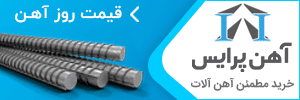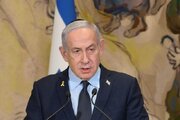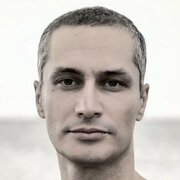Tunisian-Lebanese journalist Ghassan Ben Jeddou says Al Jazeera satellite TV was an honest and sincere news source, but in recent years it has turned a blind eye to the realities of Arab world, as now it contributes in deceiving people and takes steps in line with the "enemy's stance."
On the critical days of developments in Syria, Bahrain, Yemen and Libya, through his resignation from Al Jazeera for what he called the satellite channel's "lack of professionalism and objectivity in covering the Arab revolutions", Ben Jeddou created an extensive controversy in Arabian media. In an interview the journalist spoke of his possible assassination by those he insistently says exactly knows from where they are supported.
On the other hand, Ben Jeddou has been accused of taking side with regime of Beshar al-Assad in Syria, against the people's demands. He has denied such allegations saying that after the assassination of President Rafic Hariri he was banned from entering Syria for more than a year and a half because of his position. Ben Jeddou also reiterated that he strongly supports the reform protests in Syria, but on the other hand is and always be with the Arab nationalism ideas promoted by Syria.
The former bureau chief of Al Jazeera in Tehran is the only journalist who has interviewed the secretary general of Hezbollah, Sheikh Hassan Nasrallah during the Israel-Lebanon combat of 2006. Ben Jeddou has also interviewed former Cuban President Fidel Castro.
Interviewed by Khabar Online, he elaborated on the reasons behind his resignation from Al Jazeera.
Let's begin the Arabian revolutions before talking about the issue of your resignation from Al Jazeera. We just passed the anniversary day of the withdrawal of the Zionist regime of Israel's forces from south Lebanon. Some say the victory which was won on May 25, 2000 [and ended 22 years of "Israeli" occupation of Lebanon is similar to one scored on January 25, 2011 by the Egyptians. They are described as historical twins. What do you think about them?
I assert that the impact of the victory of 2006 over Israel is much higher than that of May 25, 2000 since the triumph of 2000 was achieved by Arab citizens after many years of conflict. But the victory of 2006 was won after a short time battle which had not been witnessed by the whole Arabian society. The war of 2006 lasted simply 33 days when all were waiting to see what will happen in Lebanon. I believe the victory of 2006 was a great achievement which extensively conveyed the message of resistance and the culture of resistance throughout the world. We will never forget that resistance in Lebanon was a unique role model which represented a unique bravery. For example the world was amazed how a woman was confirming his allegiance to Sheikh Hassan Nasrallah and was chanting slogans in his support while her home was under the fire of the enemy. When the cease-fire was agreed and announced, we saw how people came back to their homes and followed their life in the south Lebanon routinely.
How do you evaluate the role played by Sheikh Hassan Nasrallah in scoring such victory?
He is one of the key elements of resistance and glory in Lebanon. He is a charismatic and truly great leader. At the moment when the Arabian revolutions desperately need a great charismatic leadership, we don't have a figure as popular and authoritative as him who is able to control the crises. When the uprisings in Tunisia and Egypt led to a victory, I said we have simply witnessed a half-finished revolution and I hope it won't relegate to a quarter revolution which would result to a condition that makes us unable to speak of a revolution by a year later.
It was Al Jazeera which for the first time fully covered the celebration held for the Arabian victory of 2000 and the lecture delivered by the secretary general of Hezbollah, Sheikh Hassan Nasrallah. The satellite TV channel played a pivotal role in the developments of 2006 and could convey the pains of Palestinian people to the world, whatever happened to them as well as those happened later in Gaza, Tunisia and Egypt. But suddenly with the change of its policies we gave up our hopes particularly after you resigned. What's your view about that?
At first I would say people have their own right to voice their opinions. I hear from various individuals that in years Al Jazeera has deceived people, but I don't buy this word. Al Jazeera was an honest and sincere satellite channel and I saw to what extent it was making efforts to accomplish its task. Al Jazeera opened new doors to the realities of the region and began to illuminate the minds. On the other hand it gave a voice to opposition figures, pressed the rulers and disclosed the machinations of the dictators. But later it distorted the lines of boundary between friends and enemies which diverted its route. I don't hide this fact. I protested Al Jazeera because it approved the Israelis' plan, played in their court and at a time turned to the mouthpiece of Israel.
But you didn't criticize Al Jazeera in the past. For example you remained silent when Al Jazeera was in tune with the supporters of Saddam Hussein.
Well, it's not true. Even at that time I was against some policies adopted by Al Jazeera channel. I didn't accept to work in some of its projects. Here I would resolutely say I was not satisfied at all with the approach of Al Jazeera during the war of 2003 against Iraq, as a matter of fact I was completely against the policy of Al Jazeera at that time. I was saying Al Jazeera news coverage of the developments in Iraq at many times were exaggerated, biased and pro-Saddam Hussein. News coverage of the channel were at many times unrealistic and aimed to achieve different goals....
So why didn't you resign from Al Jazeera then?
I kept on working there because of political choices....
Why did you resign just recently?
Because I don't have a problem simply with Al Jazeera, but with the major part of Arabian media comprised of satellite TV channels and newspapers. During the late weeks and months we are talking of a media scandal. We have become a part of an apparatus which creates a big deceptionwhich includes lying, hypocrisy and turning the truths upside down. Interviewed by the newspapers, we are talking of what which has no base in reality. We are playing with the titles and issues. We are with the Arabs. Is it possible when we are fighting with a regime, we talk of respect for the others' ideas above all Israelis? It's not simply lack of professionalism and objectivity, but misleading people.
Can you give us an example?
Yes there are three clear and undeniable examples in Libya but not in Bahrain and Syria. The situation of Yemen lies in the middle. What is underway in Bahrain is not acceptable at all. It is completely baseless that the media say the videos and photos of what is happening in Bahrain are unavailable. In Bahrain like in Libya people are taking photos and recording videos and send them for the media but they don't protest or publish them. The same is true for Syria's situation. Syrian people are also limited in taking photos and recording videos but unlike Bahrain the range of media coverage in these countries are so high, what's the reason behind such bias? It's a burning question.
But the same events are underway in Syria.
It's not obvious. One of the satellite TV channels reported a car belonging to the opponents of Syrian government ran over 6 policemen and killed them. First who can definitely say that the car belonged to the opponents? Only later it was revealed that the video was dated and had nothing to do with the latest developments in Syria.
But in the Bahrain, where 30 mosques and Hosseinyeh-s [assembly halls especially built for ceremonies commemorating the martyrdom of Imam Hossein (AS)] belonging to Shiites were destroyed, tens of people were killed or tortured and arrested, nothing is reported on the ongoing events. It's a political participation in bloodshed. Yes of course protests are staged in Syria, but when we realize the photos and videos showing the protests are manipulated. We have to question the validity of all the videos and photos which are received, and only this way we will be able to verify their authenticity.
You are also responsible since before resignation you were working with Al Jazeera.
Yes we journalists and reporters apologized for the situation, but what about satellite TV channels? Did any of them apologize? Did any manager apologize for all faked and manipulated videos? Is it sensible to provide reports based on a phony video as neither its source nor its makers are known? That's why I say many Arabian media are working based on political back-scratching and anti-nationalistic ideas which fully disseminate lying and misleading. Is it for example sensible when a channel is airing a speech made by Pres. Beshar al-Assad to mock his words at the same time, while it has consented to provide a live broadcast of his speech? Here I'm not talking about the news, I'm talking about the reports which are created in news rooms.
Syrian TV channels have described you as the brave man of Arabian nation. They raised your photos in various cities of Syria and said Ghassan Ben Jeddou is giving voice to those who have no mouthpiece. Do you also agree this idea?
I believe Syrians are currently subjected to an intense media censorship which has distorted their true image. Whatever we see of Syria is unrealistic. Mr. Beshar al-Assad begins his work from 7:30 A.M. with meeting different people. I don't think any Arabian leader or president, even those who are in dispute with their people don't begin their daily work like this. Many agreements have been made between Syrian government and the prominent anti-government figures. The opponents have consented to participate in national discussions. I really would like to watch the footages of such meetings whether of accented by young people, artists, traders or the leaders of tribes on TV screens. Such meetings have been absolutely influential and prepared the ground for dialogues between the government and people from various walks of life. It has led to passing laws on the benefit of political parties, media and economic situation.
The enemies of Syrian government believe that a golden chance is standing to put the regime under pressure. We have witnessed the extent of such pressures and threats as the European Union imposed sanctions on Syria president. Moreover we are all observing the situation in Syria-Lebanon border which even may influence the interior situation of Syria. What's your view on the issue?
It will definitely put an influence, but we may ask what is going on in Syria is a revolution, protest, armed struggle or a plot weaved by foreigners? I assert that the ongoing events in Syria is not a revolution, because such actions are taken week by week and Friday by Friday, but the revolutions continue in hours, days and months like what happened in Tunisia and Egypt or whatever is happening in Yemen as people stage demonstrations and rallies to a large extent everyday. But in Syria protests are held after Friday Prayers as the level of public participation is also too low and it has been dramatically reduced within the last days. The reason is that most of the times the people of Syria do not agree with such moves.
You mean they are not seeking any development?
They are seeking reform, yes they want a change in the current situation and more freedom, but at the same time they are still trust their president and want him to initiate reforms as soon as possible. A huge part of Syrian people who I would say constitute the majority of the nation believe if Beshar al-Assad resigns, their country will go downhill. They say in the absence of Beshar there would be no security and stability in Syria. That's why we don't see huge protests in major cities including Damascus.
I sense that a foreign conspiracy is also involved. The fact that some have taken up arms against the government is in itself rises suspicion. No one has said they have been employed or mobilized by the government. I believe they have been trained and prepared from many years ago, since they are really equipped they extensively receive logistical support and have missiles made in France, antitank missiles, machine guns and mortars. They are not ordinary people.
I believe even the United States of America have employed persons to exacerbate the violence there. They sent 400 "Takfiri" forces from outside to Syria and told them to do whatever they want.
How did you get such information, it's rather hard to believe.
I have received them directly from Baghdad. My source of information is not Damascus, it comes from Nouri al-Maleki. I think he has also informed the leaders of Syria. He wants to say I'm not involved in these actions. The armed persons have joined the protesters in Doraa and Syrian borders with Lebanon and Jordan. Interestingly in those regions some tunnels with 5 km long exist.








نظر شما